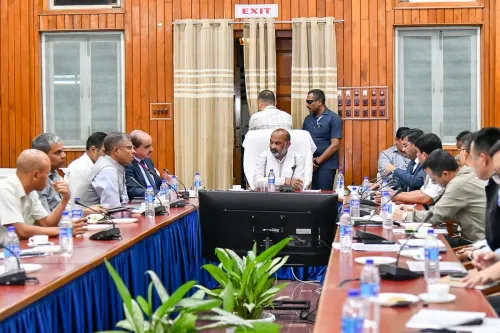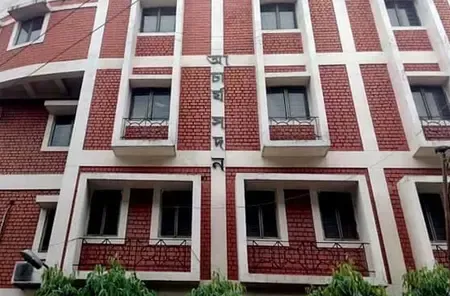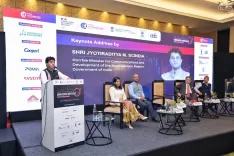Did the Supreme Court Just Dismiss Byju's Settlement Plea?

Synopsis
Key Takeaways
- The Supreme Court dismissed Byju's settlement plea.
- The NCLAT ruling requires approval from the Committee of Creditors.
- Byju's Corporate Insolvency Resolution Process is ongoing.
- Glas Trust is a significant creditor to Byju's.
- Serious allegations of financial misconduct have emerged.
New Delhi, July 21 (NationPress) The Supreme Court has dismissed the petitions submitted by the BCCI and Riju Raveendran, brother of Byju Raveendran, which sought to withdraw the insolvency proceedings involving Byju's and to evaluate a settlement between the struggling edtech firm and the BCCI.
A Bench consisting of Justices JB Pardiwala and R Mahadeven declined to intervene in the April 17 ruling of the National Company Law Appellate Tribunal (NCLAT). This ruling stated that since the settlement proposal was submitted after the establishment of the Committee of Creditors (CoC), it needed the approval of the lenders' body as per section 12 A of the Insolvency and Bankruptcy Code.
In February 2025, the National Company Law Tribunal (NCLT) instructed the petitioners to present their settlement proposal to the new CoC, which includes Glas Trust, the trustee for lenders to whom Byju's owes a staggering $1.2 billion. The Corporate Insolvency Resolution Process (CIRP) against Byju's commenced in July last year, following the admission of a ₹158.90 crore claim from the BCCI as an operational creditor of the prominent edtech firm.
An Interim Resolution Professional (IRP) was appointed in this case. Subsequently, a settlement was reached among the parties, prompting Byju Raveendran to approach the NCLAT. On August 2, 2024, the appellate tribunal annulled the insolvency proceedings against Byju's after consenting to a dues settlement with the BCCI, which had entered into a Team Sponsor Agreement with the cricket organization in 2019. This decision was contested by Glas Trust in the Supreme Court.
A Bench led by the then Chief Justice of India (CJI) DY Chandrachud halted the NCLAT ruling and mandated the BCCI to deposit the amount in question into a separate escrow account until further notice.
In the meantime, Byju’s Alpha, a specially created financing vehicle based in the US to obtain proceeds from a $1.5 billion Term Loan B, has filed a lawsuit against Byju Raveendran, his co-founder, and his wife Divya Gokulnath, claiming they were involved in the “theft of $533 million.” Byju’s Alpha announced that following the $533 million ruling from the United States Bankruptcy Court for the District of Delaware against Riju Ravindran and Byju’s parent company in India, they have now initiated a lawsuit against Byju Raveendran, his co-founder, his wife, and his advisor, Anita Kishore.
The lawsuit alleges that they collaboratively devised and executed a scheme to conceal and misappropriate $533 million of loan proceeds, termed as the ‘Alpha Funds’. They also stated that “it is evident that Byju, Divya, and Anita intentionally concealed the assets of Byju’s Alpha and consistently misled regarding the whereabouts of the funds to steal money that rightfully belongs to the Lenders.”









